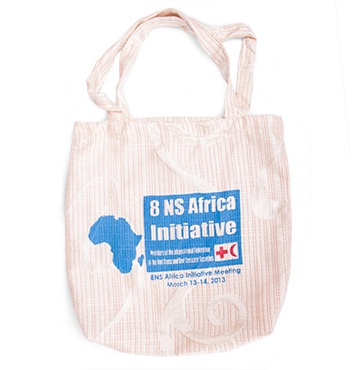Vaccine Bottles
They are sobering statistics: each day, 18,000 children die from illnesses like diarrhoea, malaria, and pneumonia. Nearly half of that total dies before their first month. Add to this 800 mothers who die daily from conditions including post-partum haemorrhage and infections, high blood pressure during pregnancy and unsafe abortions. More than half of these maternal and child deaths occur in countries affected by conflict, disasters and fragility.
Many of these deaths can be prevented through low-cost, simple, often community-based solutions which improve local health care, increase access and help to address health inequities for women, children and adolescents. Working with its international partners, the Canadian Red Cross has made significant contributions to saving lives in remote, impoverished areas by improving local health systems.
Canadian Red Cross programs to address women’s and children’s health have especially proven critical in countries affected by conflict and disaster, where many children and women are cut off from essential health services. Initiatives have included community-based treatment for children with malaria, diarrhoea and pneumonia, health promotion, obstetric care through field hospitals Emergency Response Units, pre- and post-natal care, and sanitation upgrades.
Examples of where Canadian Red Cross efforts have made a difference:
● Kenya: Over three years, a 45 per cent increase in infants exclusively breastfed for six months.
● Honduras: Urging men to take a greater role in preventing child and maternal mortality.
● Liberia: Increases between 49 and 74 per cent in children treated for diarrhoea, malaria, and pneumonia.
● Mali: Increasing number of newborns who received a post-natal care visit by 19 per cent.
● Pakistan: delivering thousands of messages encouraging women to receive antenatal care.
● Philippines: Assisting in the delivery of over 400 babies in the month following Typhoon Haiyan.
● Syria: Supporting five nutrition centres to treat malnutrition in children.
They are sobering statistics: each day, 18,000 children die from illnesses like diarrhoea, malaria, and pneumonia. Nearly half of that total dies before their first month. Add to this 800 mothers who die daily from conditions including post-partum haemorrhage and infections, high blood pressure during pregnancy and unsafe abortions. More than half of these maternal and child deaths occur in countries affected by conflict, disasters and fragility.
Many of these deaths can be prevented through low-cost, simple, often community-based solutions which improve local health care, increase access and help to address health inequities for women, children and adolescents. Working with its international partners, the Canadian Red Cross has made significant contributions to saving lives in remote, impoverished areas by improving local health systems.
Canadian Red Cross programs to address women’s and children’s health have especially proven critical in countries affected by conflict and disaster, where many children and women are cut off from essential health services. Initiatives have included community-based treatment for children with malaria, diarrhoea and pneumonia, health promotion, obstetric care through field hospitals Emergency Response Units, pre- and post-natal care, and sanitation upgrades.
Examples of where Canadian Red Cross efforts have made a difference:
● Kenya: Over three years, a 45 per cent increase in infants exclusively breastfed for six months.
● Honduras: Urging men to take a greater role in preventing child and maternal mortality.
● Liberia: Increases between 49 and 74 per cent in children treated for diarrhoea, malaria, and pneumonia.
● Mali: Increasing number of newborns who received a post-natal care visit by 19 per cent.
● Pakistan: delivering thousands of messages encouraging women to receive antenatal care.
● Philippines: Assisting in the delivery of over 400 babies in the month following Typhoon Haiyan.
● Syria: Supporting five nutrition centres to treat malnutrition in children.






